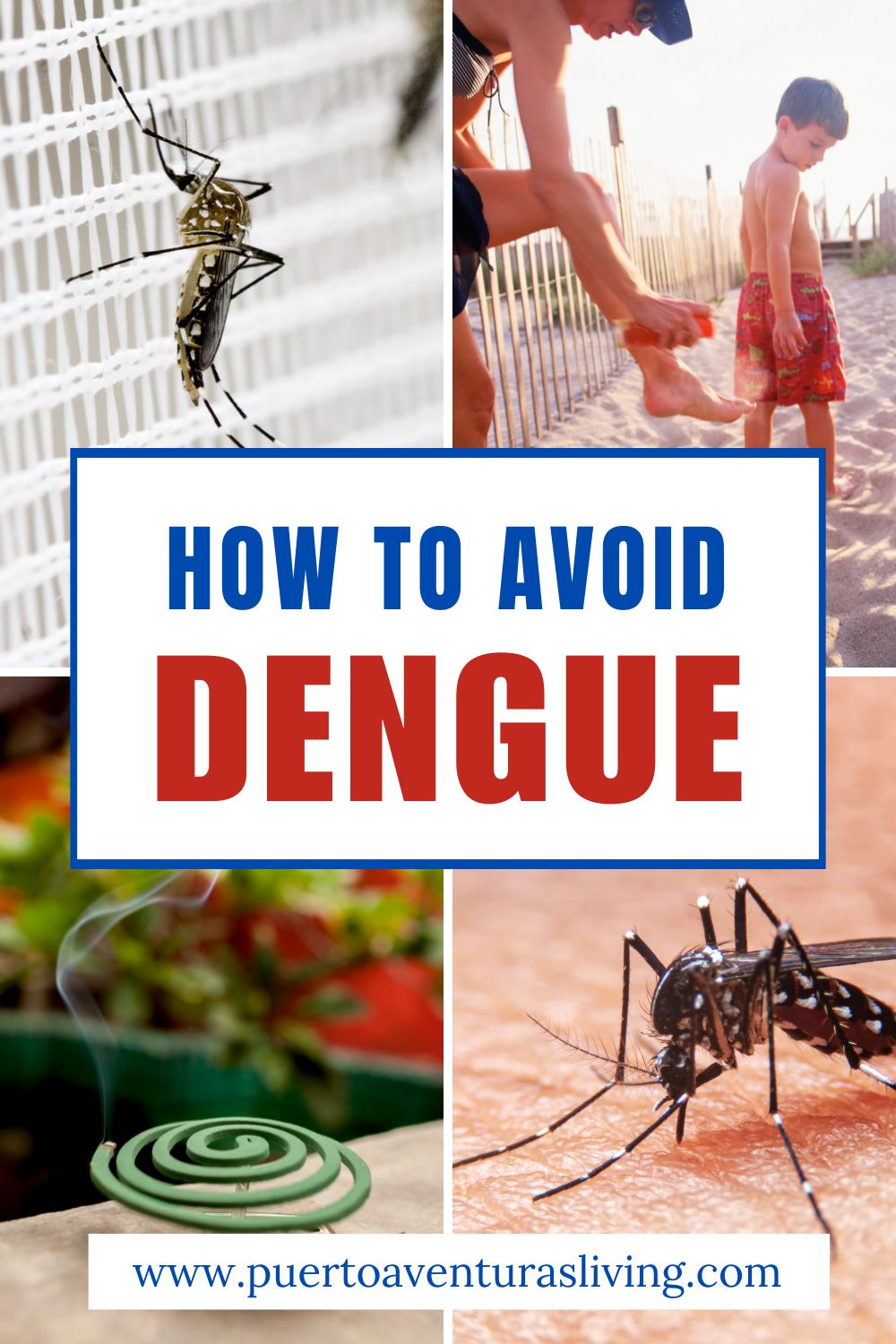Everything you need to know about dengue fever. How to avoid it and what to do if you are infected.
Table of Contents
- 1 Everything you need to know about dengue fever. How to avoid it and what to do if you are infected.
- 1.1 What is Dengue Fever?
- 1.2 Dengue Facts
- 1.3 What are the symptoms of Dengue Fever?
- 1.4 What to do if you get Dengue?
- 1.5 How Long Does Dengue Fever Last?
- 1.6 Is Dengue Contagious?
- 1.7 What is a Dengue Cluster?
- 1.8 How to Avoid Dengue
- 1.9 Is there a Vaccine for Dengue?
- 1.10 When is Dengue Season?
- 1.11 Can you get Dengue from Ticks?
- 1.12 What is the Incubation Period for Dengue Fever?
- 1.13 Interesting Mosquito Facts
- 1.14 Sources:
- 1.15 Did you find this article helpful? Share it!
- 1.16 If you enjoyed this post, you may also want to read:
If you have been traveling to the Mexican Caribbean or any other tropical region, you will probably already be familiar with dengue, sometimes called dengue fever. Maybe you even know someone who has contracted dengue while living or visiting the Riviera Maya.
I have contracted dengue fever twice, once in 2005 and then again in 2006. From my own experience and those of my family and close friends who have also suffered from dengue fever, I can tell you that it is nothing to take lightly and something you should take precautions against.
The best way to know how to avoid dengue fever and protect yourself and your family is to understand the virus and how it can be spread.
What is Dengue Fever?
Dengue (pronounced DENgay) fever is a painful, debilitating mosquito-borne disease caused by any one of four closely related viruses. These viruses are related to the viruses that cause West Nile Disease and Yellow Fever.
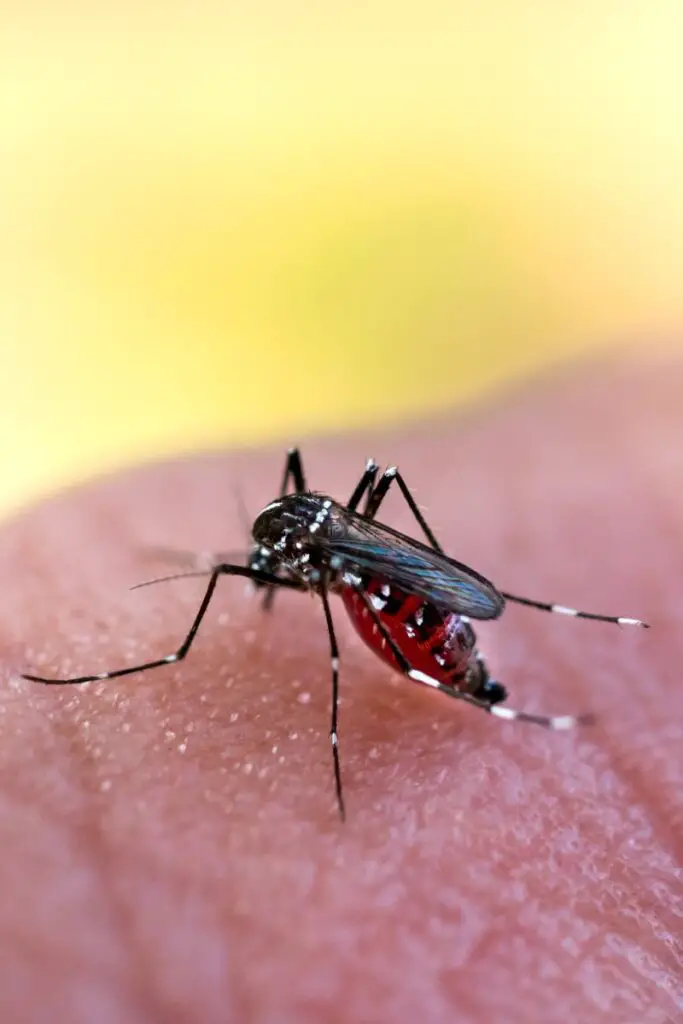
The dengue virus is spread via the bite of a female Aedes aegypti or Aedes albopictus mosquito that has previously bitten an infected person. These mosquitos are prevalent in tropical and subtropic regions and are found mostly in urban and semi-urban areas.
These mosquitos are easily identifiable by the distinctive black and white stripes on their body and legs and are most active during the daytime.
Dengue goes by other names including “breakbone fever” as victims often exhibit contortions due to the intense pain in the joints, muscles, and bones.
Dengue Facts
- Dengue is endemic in at least 128 countries, in tropical and subtropical regions, like the Mexican Caribbean.
- There are an estimated 390 million dengue infections annually worldwide. 96 million of these cases are clinically diagnosed.
- Only 1 out of 4 people who contract the dengue virus develop dengue fever.
- The dengue virus has four distinct strains: DENV 1, DENV 2, DENV 3, and DENV 4. All four strains can circulate at the same time.
- A mosquito can carry more than one strain of the virus in its system. Therefore, it is possible (albeit rare) to contract more than one DENV strain at a time.
- The mosquito becomes infective approximately seven days after it has bitten a person carrying the virus. This is the incubation period, during which time the virus replicates in the mosquito and reaches the salivary glands.
- Infection with DENV provides long-term protection against disease caused by reinfection with that particular strain.
- Infection with one DENV strain provides only short-lived cross-protection to the other three DENV types.
- You can only contract each strain of the dengue virus once. The likelihood of the development of severe or hemorrhagic dengue increases each time you are infected with another DENV strain.
- Infants and pregnant women are at higher risk of contracting serious or hemorrhagic dengue fever.
- Typical dengue fever is fatal in less than 1% of cases; however, the more severe dengue hemorrhagic fever is fatal in 2.5% of cases.
- If dengue hemorrhagic fever is left untreated, mortality rates can be as high as 20% – 50%.
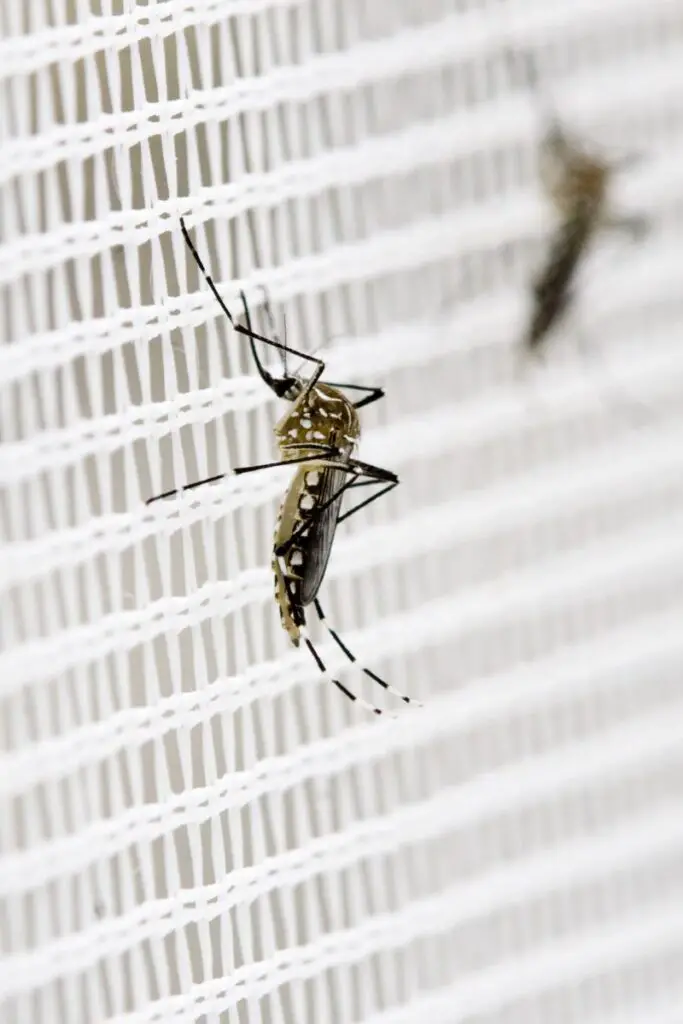
What are the symptoms of Dengue Fever?
Dengue fever starts with non-specific flu-like symptoms which include the following:
- Sudden high fever up to 104 F (40 C)
- Persistent fever (up to 7 days)
- Headache
- Pain behind the eyes
- Severe joint and muscle aches
- Loss of appetite
- Nausea and vomiting
- Skin rash
- Exhaustion
According to the World Health Organisation (WHO), dengue fever is classified into 1. dengue without warning signs, 2. dengue with warning signs and 3. severe dengue.
Severe dengue happens when your blood vessels become damaged and leaky, and the number of clot-forming cells (platelets) in your bloodstream drops. This can lead to shock, internal bleeding, organ failure and even death.
It is critical to look for warning signs of severe dengue which can escalate to dengue hemorrhagic fever (DHF) or dengue shock syndrome (DSS).
Warning signs to look out for include:
- Persistent vomiting with fever present
- Severe abdominal pain
- Disorientation
- Lethargy
- Blood pressure changes
- Difficulty breathing
- Hypotension
- Inflammation of the liver
- Bleeding nose or gums
- Blood in vomit or stools
If any of these warning signs are present, seek medical help immediately!
Even dengue patients without warning signs can develop severe dengue. Dengue fever with warning signs and severe dengue require aggressive emergency treatment and hospitalization.
While uncommon, severe dengue fever can be life-threatening and fatal if left untreated.
What to do if you get Dengue?
Although dengue fever is caused by a virus, there are no anti-viral medications to treat or combat this illness.
The following course of action is recommended if you do contract dengue fever.
- Call your doctor and let him/her know that you have dengue symptoms
- Rest, rest, rest
- Drink plenty of liquids and eat if you can
- Use acetaminophen (paracetamol) for pain and fever relief
- Avoid non-steroidal anti-inflammatory drugs, like ibuprofen and aspirin
- Watch for severe symptoms and contact your doctor as soon as they present
- If you are on any anticoagulant maintenance medications, consult your doctor immediately for treatment advise
- Intravenous (IV) fluid drips and blood transfusion may be required for serious cases
- Avoid further mosquito bites to prevent the spread of the virus
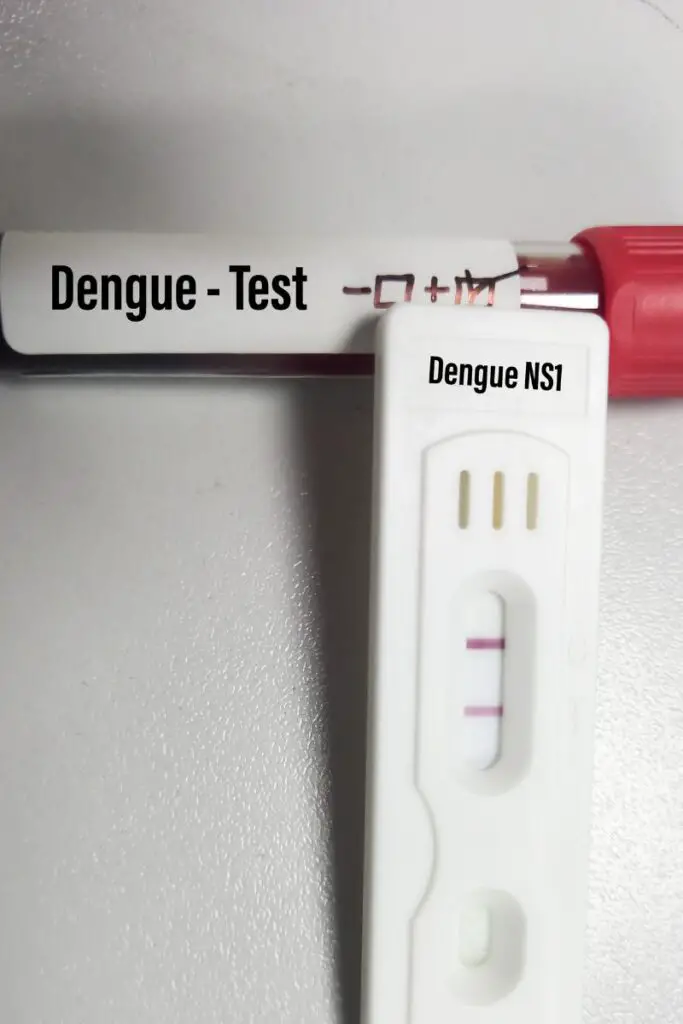
It is important to contact your doctor as soon as the symptoms of dengue fever begin. With a simple blood test, your physician will be able to diagnose whether you have dengue fever or similar symptoms indicating other issues.
Having a dengue-affected member in the house increases the chances of other members getting the fever and precautions need to be taken.
How Long Does Dengue Fever Last?
Most people in general good health will recover from dengue fever in 1- 2 weeks. The symptoms are most severe during the first week with the following weeks being recuperatory.
During the first week, it is not uncommon for victims to be completely incapacitated and bedridden. Lack of appetite, nausea and general malaise will only contribute to decreased energy and strength and may cause weight loss.
It is not uncommon for people who have contracted the dengue virus to take three weeks or more to fully recover.
Those affected by severe or hemorrhagic dengue will require hospitalization and the recovery time will vary based on the general health of the patient and any comorbidities present.
Is Dengue Contagious?
This is a complicated question and one that always sparks arguments. When we say that dengue is “contagious” it is really the wrong word. I’m going to try to make this as clear as I can.
Technically, the dengue virus is not “contagious” as it cannot spread directly from person to person. The full life cycle of the virus requires the human as the source of infection and the mosquito as the transmitter.
A mosquito bites a dengue-infected person and contracts the virus. That mosquito then bites another person and passes the dengue virus infection to that person and so on….
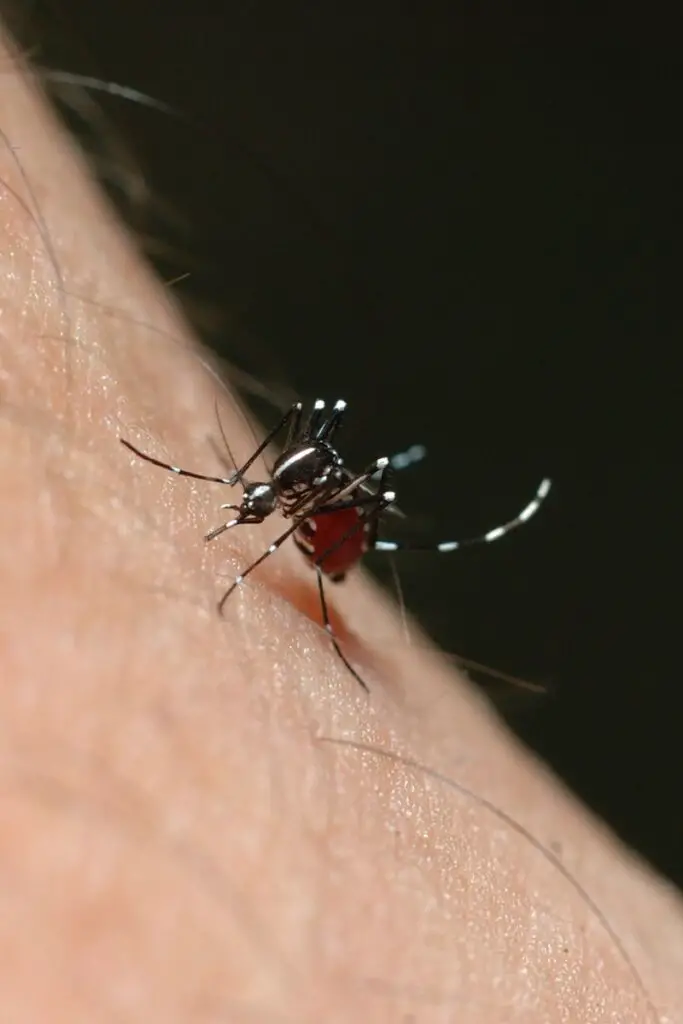
Reducing the risk of the infected person being bitten by another mosquito is crucial as this reduces the risk that the virus will be spread throughout the home or to neighbors.
After being bitten by a mosquito carrying the virus, the incubation period for dengue fever can range from 3 to 15 days. Symptoms generally appear between 5 to 8 days of infection. Some people with dengue exhibit no symptoms at all!
A person first infected with the virus may have no idea that they have dengue and can unwittingly spread the disease during the incubation period. Still, once a diagnosis has been confirmed, recommendations for isolating the patient from others in the household are more than reasonable.
Those infected with dengue fever who do not take the proper precautions to avoid being bitten increase the risk of a dengue cluster occurring here in the community.
What is a Dengue Cluster?
If you recall, there have been several instances of multiple people in the same condominium complex or neighborhood all being stricken with dengue fever. This is what is known as a “dengue cluster”.
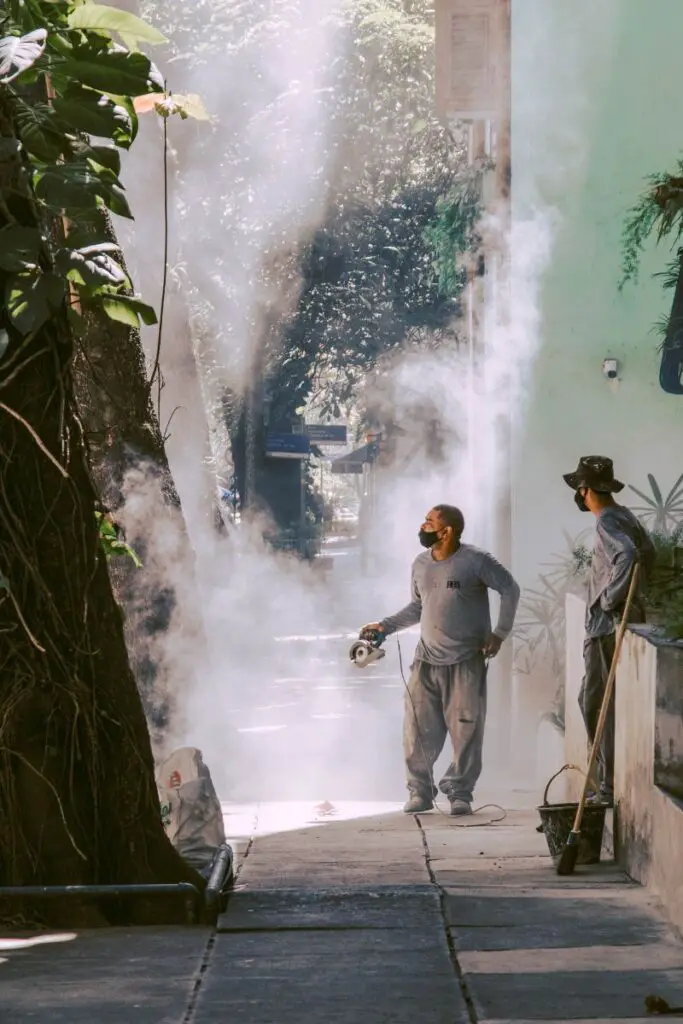
A dengue cluster can occur when an infected mosquito bites more than one person in a household or even a workplace. If more than 2 people contract dengue within 150-200 meters of each other within a period of 14 days this is called a cluster and should be reported to the local health authorities.
In the case of our gated community, Colonos should also be advised so that they can concentrate their efforts in that area with increased fumigation, garbage removal and removal of old plant waste to remove mosquito breeding areas.
How to Avoid Dengue
The Aedes aegypti and Aedes albopictus mosquitoes that spread dengue are active during the day with peak feeding times two hours after sunrise and several hours before sunset. They typically live indoors and prefer dark, humid places such as closets, under beds, behind curtains, in bathrooms and on porches.

There are several things you can do to protect yourself from mosquito bites and lower the risk of getting dengue.
- Wear clothes that cover as much of your body as possible
- Choose light-colored clothing rather than dark
- Use mosquito nets in sleeping areas, ideally, nets sprayed with insect repellent
- If you can sleep with a strong fan on, this will also help prevent mosquitos from landing on you during the night
- Make sure your window screens are intact, doors and windows are well-seeled
- Apply mosquito repellent preferably containing DEET. If you are looking for something more natural try these DEET-free mosquito bracelets.
- Burn mosquito coils, citronella candles and copal to deter mosquitos
- Plant mosquito-deterring aromatic plants such as lemongrass, catmint, rosemary, neem and geraniums.
- Buy an electric bug zapper to put in your home or on your terrace
- Keep windows and doors shut, especially during the day when the Aedes mosquitoes are most active
- Keep your house airy and well-lit. Mosquitos prefer dark and damp places
- Avoid dengue-affected households
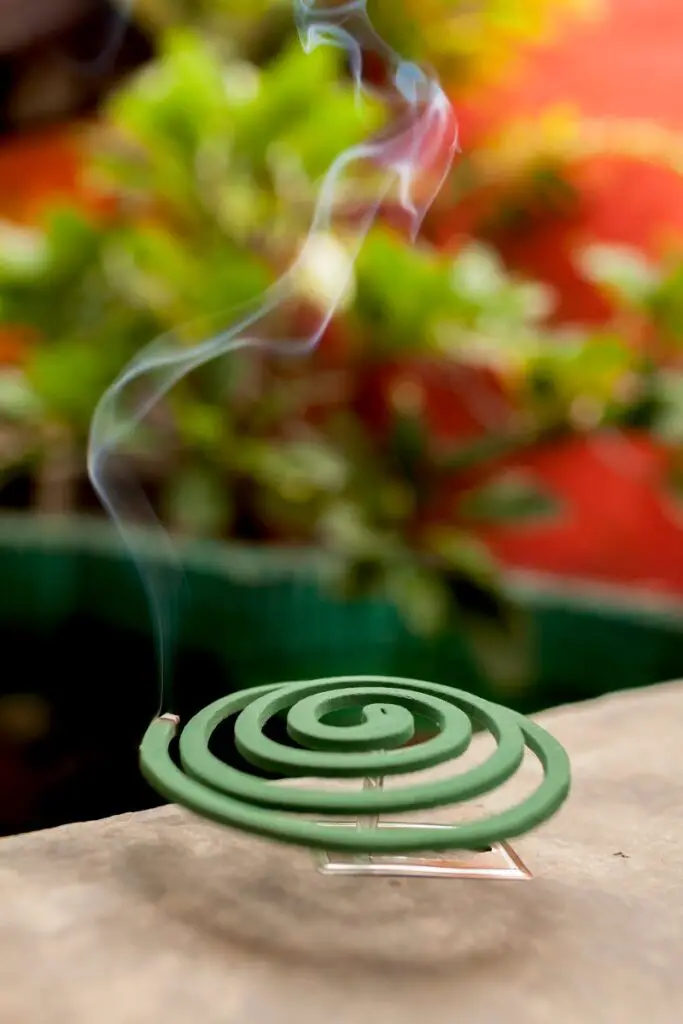
The Aedes aegypti and Aedes albopictus mosquitoes require very small amounts of standing water to lay their eggs and reproduce.
It is important to do whatever you can to eliminate mosquito breeding areas in and around your home.
- Make sure all water storage containers in and outside of your home are covered
- Clean your pets’ water bowls daily and refill with fresh bottled water
- Change the water and clean flower vases regularly
- Make sure flower pots are draining well and empty out any standing water
- Remove any items from your garden or patio that can hold even small amounts of water
- If you have any water features, be sure they have moving water
- Rake and remove garden waste after any rain
- Be sure your garbage bins close tightly to prevent rainwater from getting in
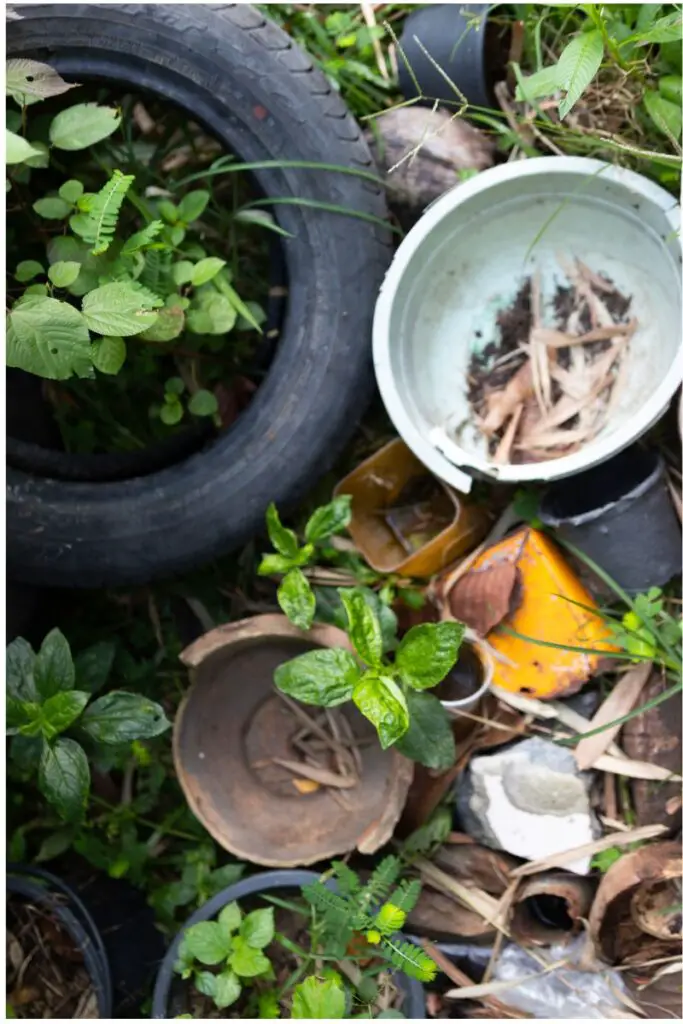
Reducing the breeding habitat available for these mosquitoes by getting rid of stagnant water to breed will help prevent the spread of dengue in our community.
Is there a Vaccine for Dengue?
As of March 2024, two vaccines for dengue, CYD-TDV (Dengvaxia) and TAK-003 (Qdenga) are commercially available. Read more here.
When is Dengue Season?
The Aedes aegypti and Aedes albopictus mosquitoes flourish during the rainy seasons. We tend to see more cases pop up at the beginning of the Summer and then again in the Fall.
But, these mosquitos are present year-round and can breed in any amount of shallow, still water. A single mosquito bite can cause the disease.
Can you get Dengue from Ticks?
No, dengue is not a tick-borne illness. Only the bite of an infected Aedes aegypti or Aedes albopictus mosquito can transmit dengue.
What is the Incubation Period for Dengue Fever?
After being bitten by a mosquito carrying the virus, the incubation period for dengue fever can range from 3 to 15 days. Symptoms usually appear between 5 to 8 days of infection and appear in stages.
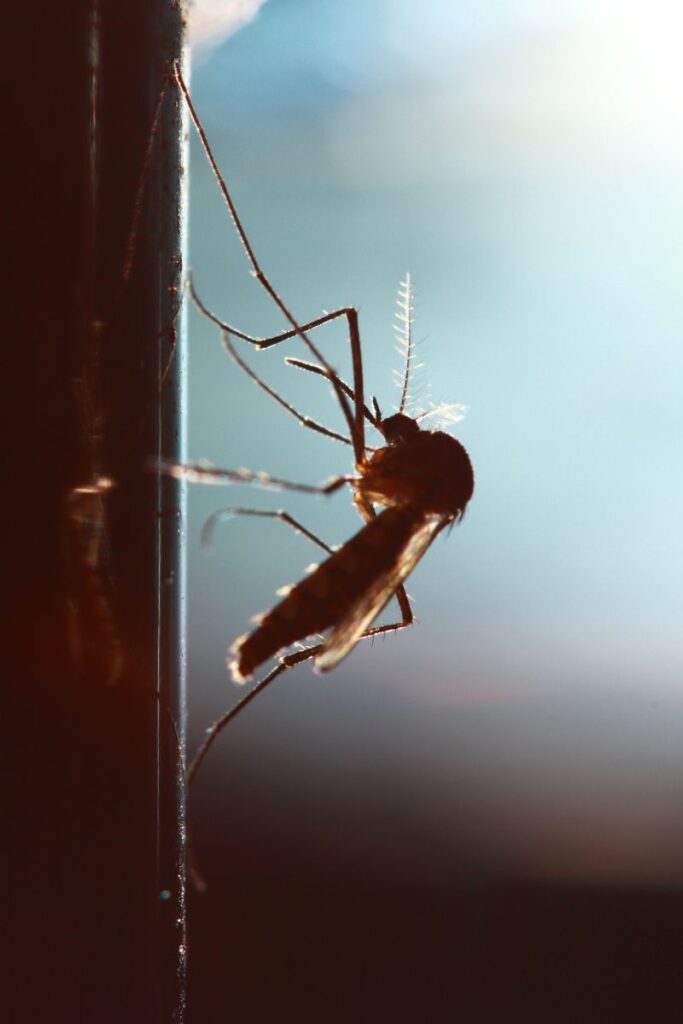
Interesting Mosquito Facts
- Only the female mosquitos bite us! Female mosquitos are attracted to humans by our heat signature and the carbon dioxide we exhale.
- Male mosquitos feed primarily on plant nectar and only live for 5 – 7 days on average.
- Female mosquitos also feed on plant nectar but require blood proteins to develop their eggs.
- The average female mosquito’s flight range is between 1 and 10 miles and her mobility depends on the food supply. Some mosquitos can travel as far as 40 miles to feed.
- The average lifespan for a female mosquito is 6 weeks. With an adequate food supply, they can live 5 months or longer.
- The female mosquito can lay eggs about three times in her lifetime, and about 100 eggs are produced each time.
- Mosquito eggs can lie dormant in dry conditions for up to nine months, after which they can hatch if exposed to favorable conditions, such as water and food.
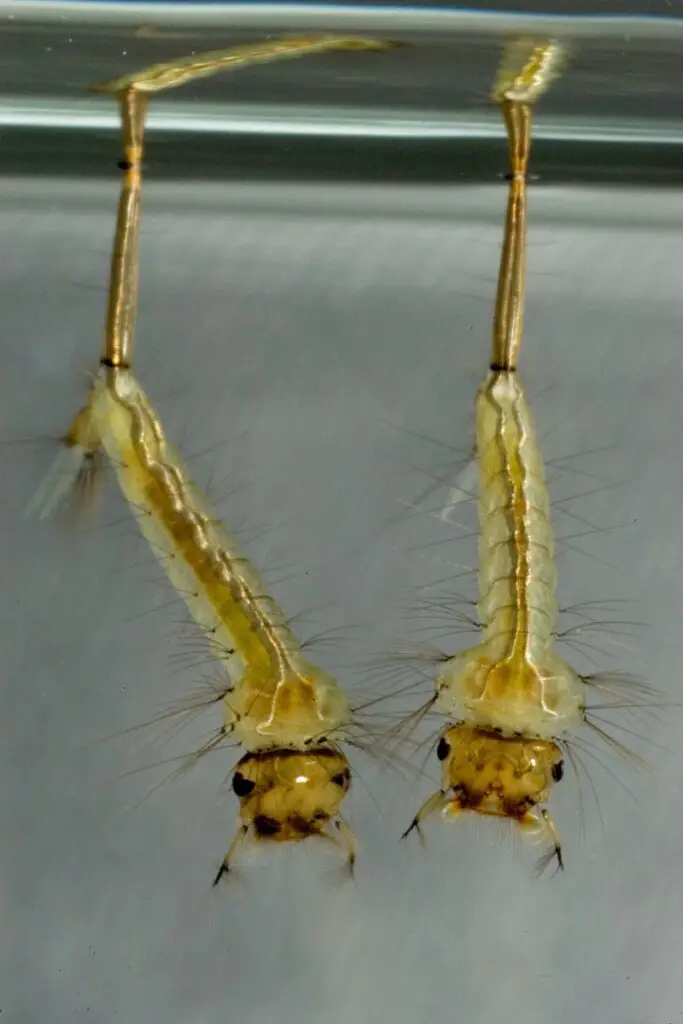
Sources:
https://www.uptodate.com/contents/dengue-virus-infection-prevention-and-treatment
https://wwwnc.cdc.gov/travel/yellowbook/2024/infections-diseases/dengue
https://www.who.int/news-room/fact-sheets/detail/dengue-and-severe-dengue
https://www.vdci.net/mosquito-biology-101-life-cycle/
